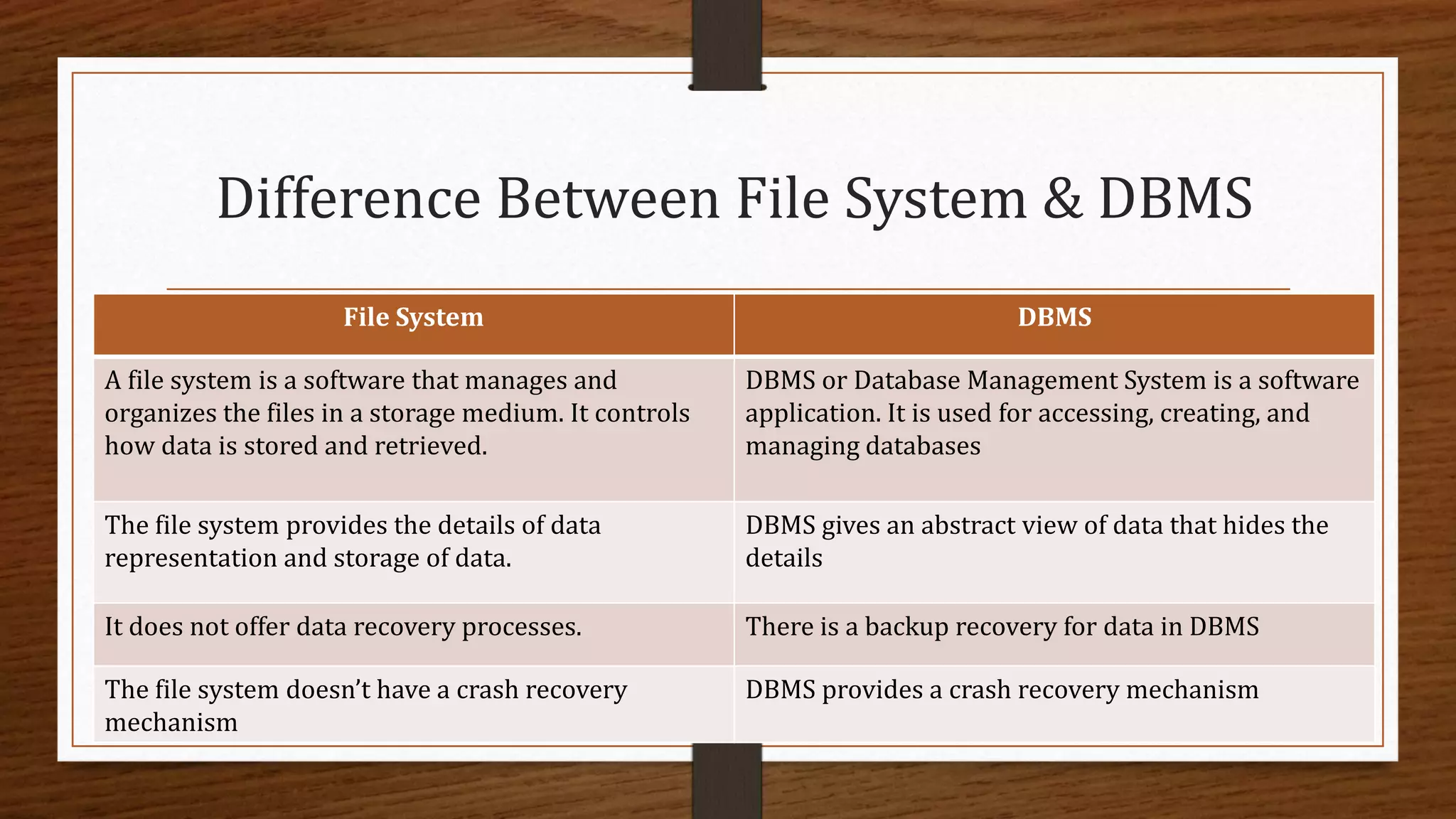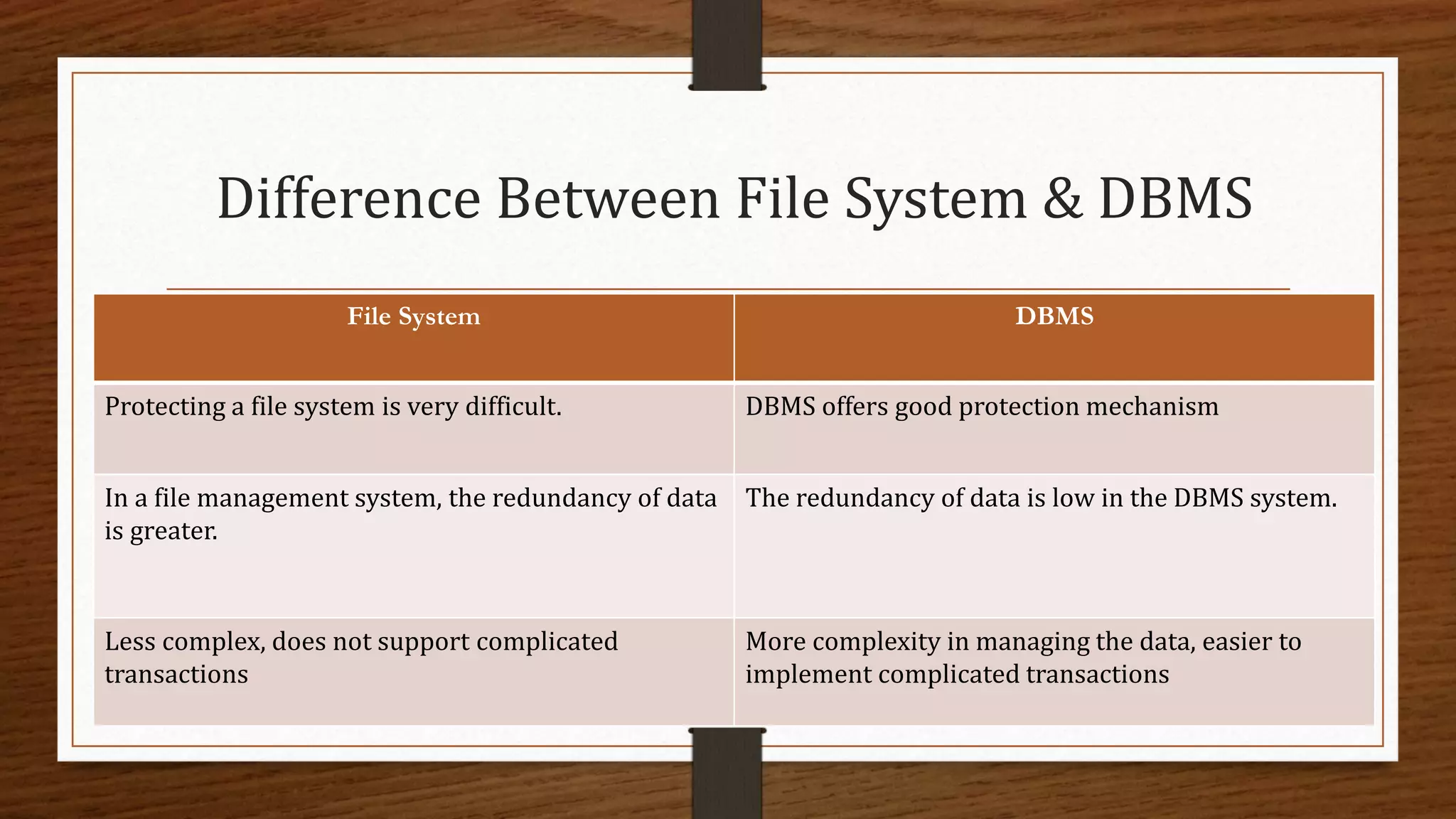The document compares file systems and database management systems (DBMS) in terms of their functions, data management, and complexity. A file system organizes data in a storage medium, while a DBMS is a software application for managing databases with features like data recovery and lower data redundancy. Key differences highlighted include protection mechanisms, complexity in handling transactions, and capabilities for managing data effectively.







